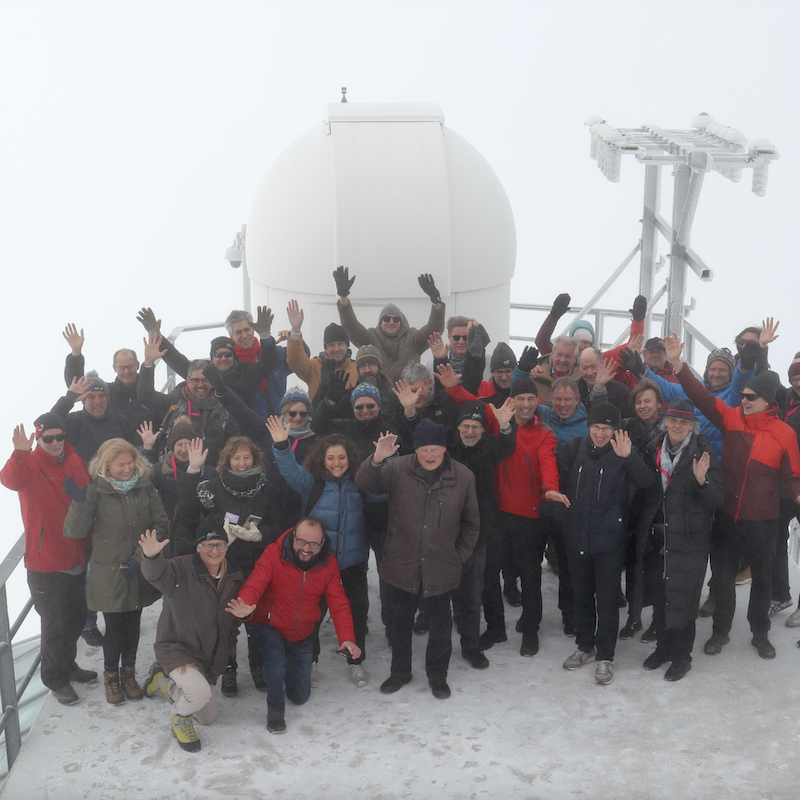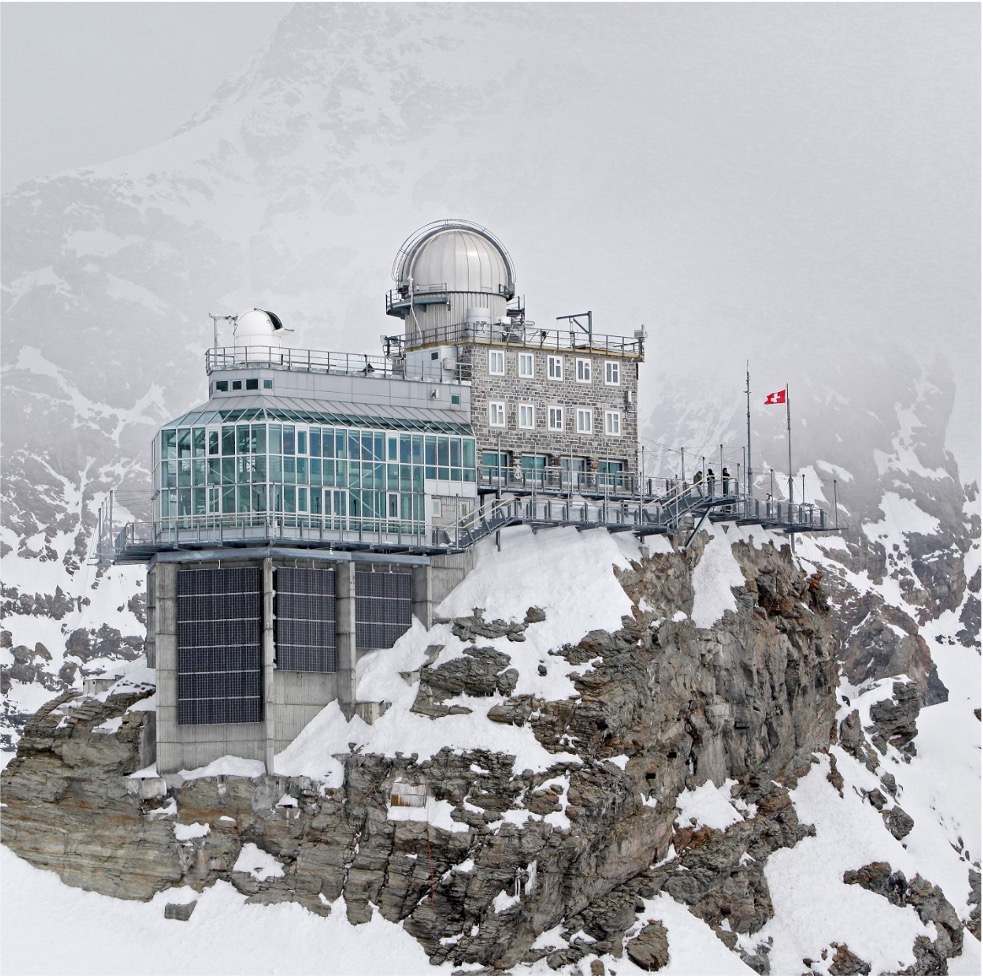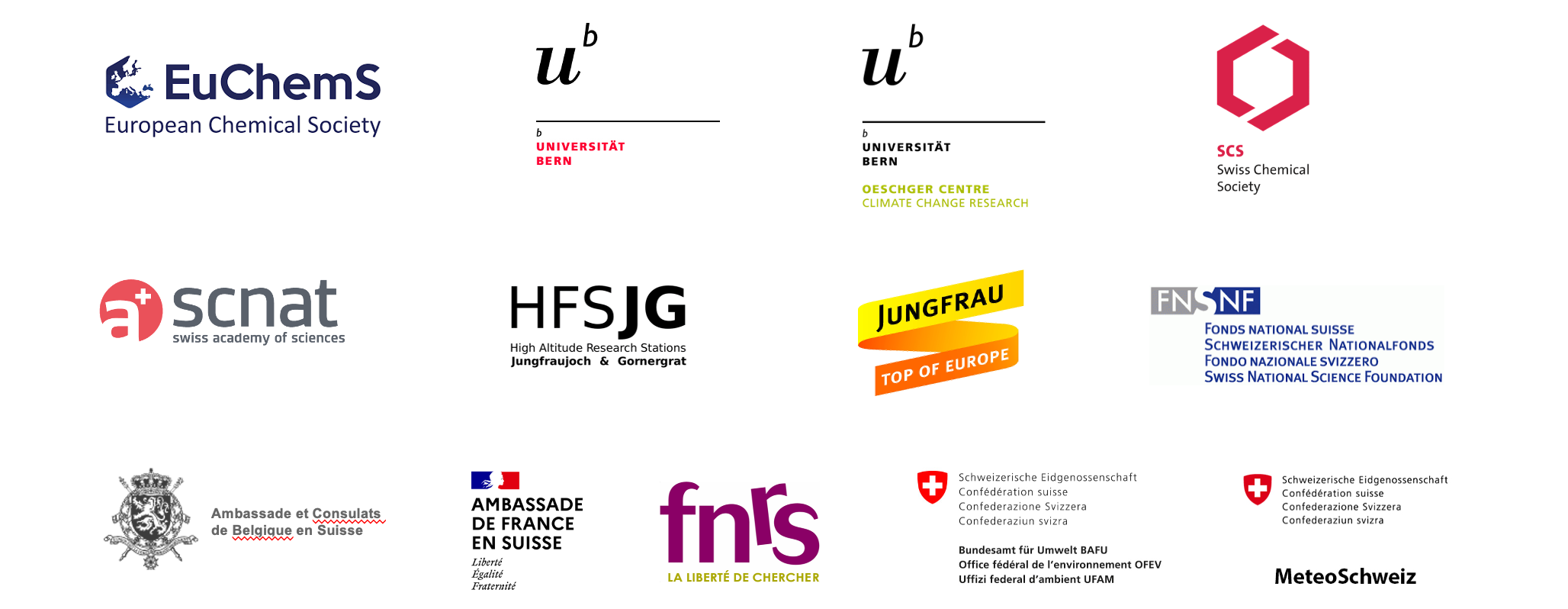 On Friday, February 17, 20923, the EuChemS Historical Landmark Award plaquette was revealed at the Jungfraujoch High Altitude Research Station, Switzerland. A delegation of international guests, including representatives from EuChemS, ambassadors and politicians from involved partner countries, scientists from across Europe and the Swiss Government joined the event on the 'Top of Europe' and not only enjoyed the historical moment during the ceremony but also the great view in bright sunshine.
On Friday, February 17, 20923, the EuChemS Historical Landmark Award plaquette was revealed at the Jungfraujoch High Altitude Research Station, Switzerland. A delegation of international guests, including representatives from EuChemS, ambassadors and politicians from involved partner countries, scientists from across Europe and the Swiss Government joined the event on the 'Top of Europe' and not only enjoyed the historical moment during the ceremony but also the great view in bright sunshine.
The day before the official ceremony on the Jungfraujoch, the SCS in collaboration with the University of Bern organized an international symposium on the topic «Chemistry of the Atmosphere» at the Department of Chemistry, Biochemistry and Pharmaceutical Sciences of the University of Bern. The program included nine talks of renowned international speakers. See the website (https://ehla23.scg.ch/) for more information and the abstracts of the talks.
History and Significance of the Research Station
In the early last century, pioneering scientists in Switzerland set up an international research center initiative for atmospheric and environmental science issues, combining chemical and physical measurements in an innovative manner. After having finished the railway from Kleine Scheidegg to the Jungfraujoch, which is still the highest railway station in Europe, the conditions for the construction of the station were met.
 Influenced not least by the events of World War I, it took almost 10 years until 1922 for the project to be officially approved and implemented with the establishment of the international foundation. Another 10 years later, in 1931, the research station was officially inaugurated. From the very beginning, international cooperation was given high priority, so it is not surprising that the Kaiser-Wilhelm-Gesellschaft (now Max Planck Society) from Germany and the Austrian Academy of Sciences, among others, were founding members of the foundation. Based on this 100-year cooperation, both the Gesellschaft Deutscher Chemiker (GDCh) and the Gesellschaft Österreichischer Chemiker (GÖCH) supported this nomination. The cooperation of the three Alpine countries as well as seven other European countries is underlined by the Virtual Alpine Observatory (VAO) initiative and the regular symposia that guarantee scientific exchange throughout the community.
Influenced not least by the events of World War I, it took almost 10 years until 1922 for the project to be officially approved and implemented with the establishment of the international foundation. Another 10 years later, in 1931, the research station was officially inaugurated. From the very beginning, international cooperation was given high priority, so it is not surprising that the Kaiser-Wilhelm-Gesellschaft (now Max Planck Society) from Germany and the Austrian Academy of Sciences, among others, were founding members of the foundation. Based on this 100-year cooperation, both the Gesellschaft Deutscher Chemiker (GDCh) and the Gesellschaft Österreichischer Chemiker (GÖCH) supported this nomination. The cooperation of the three Alpine countries as well as seven other European countries is underlined by the Virtual Alpine Observatory (VAO) initiative and the regular symposia that guarantee scientific exchange throughout the community.
International collaboration has been and still is the key of the success of the Jungfraujoch Research Station. This award is in particular granted in recognition of the pioneering work and exceptional "liaison réussie" between the research group of Prof. Marcel Migeotte (1912-1992) with collaborators from the University of Liège, Belgium, and the International Foundation of the High Altitude Research Stations Jungfraujoch and Gornergrat (HFSJG), Switzerland.
History was made at this alpine site in terms of the early identification and first fundamental measurements of harmful atmospheric constituents, such as anthropogenic greenhouse gases, and evidence of how their presence in our atmosphere has changed over the last 70 years. Our current understanding of atmospheric chemistry and physics in the context of Earth's climate system would not be possible without their visionary approach.

